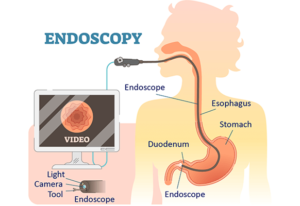When you hear the words ‘stress ulcer’, does your mind immediately think of stress and then ulcer? In order words, do you immediately think that physical stress can lead to ulcers? If you do, then you deserve a thumbs up, because that is correct!
In this article, we’ll take you through what a stress ulcer is, the types, causes, risk factors, symptoms, diagnosis and even treatment, so stay with us!
Stress comes in different forms. There’s mental or psychological stress, and there’s also physical stress.
What is a Stress Ulcer?
Stress ulcers, also called stress-related mucosal damage, are multiple, superficial erosions which occur mainly in the fundus and body of the stomach and are caused by high levels of physical stress. Superficial, as used here, means having to do with the surface, in order words, with surface aspects. The fundus is the base of an organ or the part farthest away from its opening. That was a mouthful, right? Let’s break it down.
According to Wikipedia, a stress ulcer is a single or multiple mucosal defects usually caused by physiological (not psychological) stress which can become complicated by upper gastrointestinal bleeding.
Did you know? Over 75 per cent of people hospitalized with severe burns or head trauma develop stress ulcers within 72 hours of the injury.
What Causes a Stress Ulcer?
Before now, we have written about peptic ulcers. This should, however, not be confused with a stress ulcer. While a peptic ulcer is primarily caused by H.pylori and the overuse/abuse of NSAIDS, a stress ulcer is caused by stress. By stress here, I do not mean emotional stress, but rather, extreme physiological changes in the body (although in rare cases, very significant psychological stress can trigger a stress ulcer).
In order words, this type of high levels of physical stress can be caused by:
- physical trauma
- serious long-term illness,
- surgical procedure
- trauma that occurs to the brain or body,
- serious burns
- injury to the central nervous system.
- Haemorrhage
- Injury
- Sepsis
- Shock
A stress ulcer causes sores in the upper gastrointestinal tract. These sores damage the gastrointestinal lining and cause pain and a feeling of burning, as well as an increased risk of infection. The damage can range from minor irritation to severe bleeding.
Differences Between a Peptic Ulcer and a Stress Ulcer
| S/N | PEPTIC ULCER | STRESS ULCER |
| 1. | Caused by the bacterium H. pylori and abuse of NSAIDs | Caused by high levels of physical stress. |
| 2. | Location- commonly found in the gastric antrum and the duodenum | Usually found in the fundic mucosa and can be located anywhere within the stomach and proximal duodenum. |
| 3. | Uncommon to find multiple lesions | Tend to present with multiple lesions |
| 4. | Tends to emerge gradually, as drugs or infections weaken the gastrointestinal lining | Comes on suddenly, usually as a result of physiological stress. |
Stress ulcers are very common among people under immense physical stress, such as people in intensive care units. This means that Stress ulcers can be life-threatening since they tend to affect very sick people.
How is a Stress Ulcer Formed?
There are physical effects on the body every time a person experiences critical illness or hospitalization. Stomach acid levels can increase and the lining of the stomach—also known as the mucosa—can be damaged. It can also impact the duodenum, which is just below the stomach and where food is additionally digested after leaving the stomach. As the mucosal lining deteriorates, stress ulcers begin to form.
Types of Stress ulcers
The types of stress ulcers are grouped with the types of physical stress that causes them. While many different physical stressors can lead to stress ulcers, not all of these causes have names.
However, the most popular types of stress ulcers are Curling ulcers and Cushing ulcers, and they are caused by different physical stressors, as discussed below.
- Curling ulcers are a type of stress ulcer that is caused by systemic burns, or burns that impact 30% of the body or more.
- Cushing ulcers are a type of stress ulcer that is caused by acute traumatic brain injury.
What are the risk factors for stress ulcers?
You are at higher risk of suffering stress ulcers if you belong to up to one of the following:
- Non-critically ill medical patients with 2 or more of the following: jaundice, hypertension, respiratory failure, sepsis, stroke, heart failure, hepatic encephalopathy, kidney failure, previous gastrointestinal disease and treatment with corticosteroids, warfarin, heparin, or NSAIDs.
- In surgical critically ill patients, only those patients who are on a mechanical ventilator for more than 48 hours.
- Problems with platelets (blood cells)
- History of ulcer or bleeding within the last year
- Traumatic brain injury
Symptoms of Stress Ulcers
When you hear of stress ulcers, the first symptom that comes to mind is bleeding. This is not always the case, however. Less severe symptoms are not much different from those of peptic ulcers and other gastric conditions, which include
- Pain in the upper stomach
- Abdominal pain, with or without bloating
- Pain that varies based on food intake
- Feeling unusually full or bloated
- Symptoms of anaemia, like pale skin and shortness of breath
- Nausea or vomiting
On the other hand, bleeding that comes from the upper part of the gastrointestinal tract is the most common symptom among people who are critically ill. This bleeding can cause dangerous levels of blood loss in patients who are already suffering from other serious medical conditions. Symptoms of a heavily bleeding ulcer can include:
- Vomit that resembles coffee grounds or contains large amounts of blood
- Bloody stool
- Tarry, dark bowel movements
- Fainting or feeling light-headed
- Pale skin
- Pain after eating, feeling full or bloated, or upper abdominal pain
- Low blood pressure when standing up.
How is a Stress Ulcer Diagnosed?

A stress ulcer is suspected when there is upper gastrointestinal bleeding in the appropriate clinical setting, for example, when there is upper gastrointestinal bleeding in elderly patients in a surgical intensive care unit (ICU) with heart and lung disease, or when there is upper gastrointestinal bleeding in patients in a medical ICU who require respirators.
As a precautionary measure, medications called proton pump inhibitors, which decrease stomach acid, are sometimes given to people in ICUs to prevent stress ulcers.
Stress ulcers can be diagnosed with a procedure known as an endoscopy (of the gastrointestinal tract, also called GI endoscopy). In this procedure, a medical device made up of a long tube with a light and camera is placed into the stomach through the mouth.
Treatment for Stress Ulcers
Now that we have understood a lot about stress ulcers, the big question becomes, how can it be treated.
Let us begin by stating that no matter the treatment approach used, the primary goal of treatment is to reduce stomach acid and lower the risk of serious infections, bleeding, and shock.
Treatment for stress ulcers usually begins with prevention, that is strategies for treating stress ulcers are similar to those for preventing the ulcers. In addition, treatment for stress ulcers is similar to that for other stomach and duodenal ulcers.
Just like in the use of over-the-counter antacids to help treat occasional heartburn, the first goal of treatment for stress ulcers is to lower the acidity of the patient’s stomach to allow inflamed tissues to begin healing.
One of the first lines of treatment for stress ulcers is drugs such as proton pump inhibitors or histamine blockers designed to reduce the secretion of stomach acid. (Note that as earlier stated, proton pump inhibitors can also be used to prevent stress ulcers). These drugs work on different chemical pathways, but both can help reduce the elevated amount of acid in the patient’s digestive tract that contributes to the development of ulcers.
Even though allowing the body to begin healing itself is part of the course of treatment, it is not all that is entailed. Since stress ulcers are typically present in patients who are suffering from other serious illnesses, treating the underlying condition that caused the stress ulcers to appear will be necessary for the body to fully heal.
Conclusion
A stress ulcer is a single or multiple mucosal defects usually caused by physiological (not psychological) stress which can become complicated by upper gastrointestinal bleeding. Some of the causes of stress ulcers are physical trauma, serious long-term illness, surgical procedure and others.
Although similar to a peptic ulcer, a stress ulcer differs in multiple ways, especially the causative factor. While a peptic ulcer is caused by the bacterium H. pylori and prolonged use of NSAIDs, a stress ulcer is caused by high levels of physical stress.
Stressed ulcers are classified based on their causes and the common types are Curling ulcers and Cushing ulcers. Less severe symptoms of a stress ulcer include pain in the upper stomach and abdominal pain, with or without bloating, while more severe symptoms include bloody stool and fainting/ lightheadedness.
Stress ulcers can be diagnosed with a procedure known as an endoscopy. Treatment for stress ulcers is similar to preventive measures and it sometimes involves the use of drugs such as proton pump inhibitors or histamine blockers designed to reduce the secretion of stomach acid.



